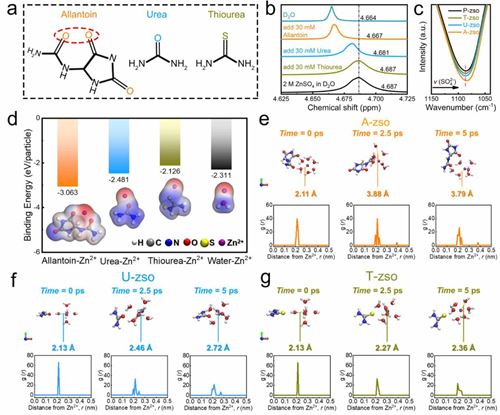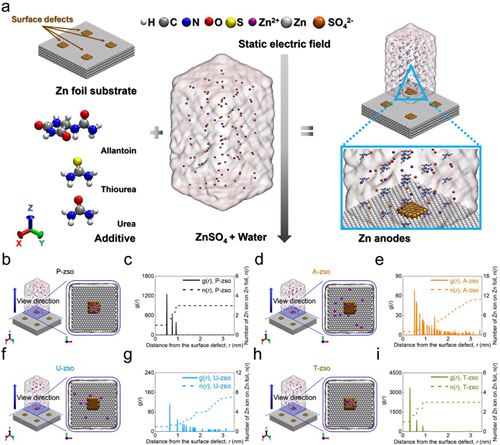Dr FU Jimin, Member of the Research Institute for Intelligent Wearable Systems, and his collaborators from Anhui University in China, developed a novel electrolyte formulation which boosts the rechargeability of full zinc metal batteries (ZMBs).
The optimised aqueous electrolytes contain additives that prevent dendrite formation on the zinc metal anode (ZMA). The formation of zinc (Zn) dendrites shortens the cycle life of batteries. Three additive substances, namely, thiourea, urea and allantoin, were investigated for their ability to regulate zinc sulphate (ZnSO4) baseline electrolyte. The team identified two molecular principles that help inform the selection of appropriate electrolyte additives: urea (carbonyl compound) is preferable to thiourea (thiocarbonyl compound) in terms of molecular composition, while allantoin (bidentate ligand) outperforms urea (monodentate ligand) in terms of molecular structure.
The electrolyte additives were found to significantly boost the batteries’ rechargeability after 2,000 charge cycles. Optimised ZMBs containing allantoin-ZnSO4 hybrid electrolyte retained 85.7% of rechargeable capacity, while those containing additive-free ZnSO4 electrolyte retained only 40.5%.
The findings provide deeper insight into dendrite-free ZMA from a molecular perspective, and enable the rational selection of additives to inhibit dendrite growth on ZMA. The research was published in Volume 55 of Energy Storage Materials (https://doi.org/10.1016/j.ensm.2022.12.030).









